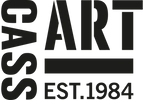ARTIST INTERVIEW: KATE SHOREY WINS THE CASS ART MiAL BURSARY 2024
14th Jun 2024
Made in Arts London (MiAL) is a not-for-profit enterprise that sells and promotes art and design from University of the Arts London current students and recent graduates. Each year since 2015, Cass Art has awarded a materials bursary to one MiAL artist. Ahead of her exciting exhibition, we caught up with artist Kate Shorey, winner of the 2024 bursary to find out more about her work…
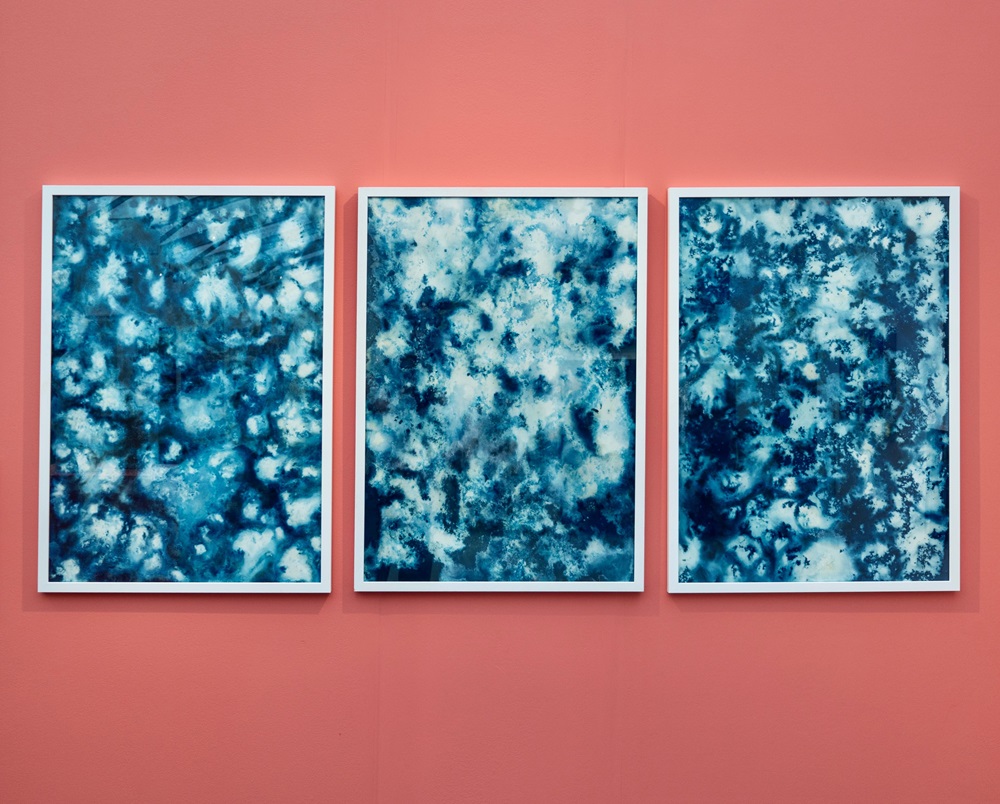
Hi Kate, firstly congratulations on winning the Cass Art MiAL Bursary Award! Tell us a little about your creative journey so far.
Thank you so much, it’s an honour to be chosen! I grew up near Reading and did my Bachelor's at Falmouth University in Photography from 2014 - 2017. Then I worked for a few years on my art and teaching practice before starting my MA in Fine Art at Central Saint Martins in 2021, which I was fortunate enough to be awarded a scholarship for. I finished last year in 2023 and also self-published my book ‘Biophilia,’ based on my MA research paper and made my first short film based on the same research.
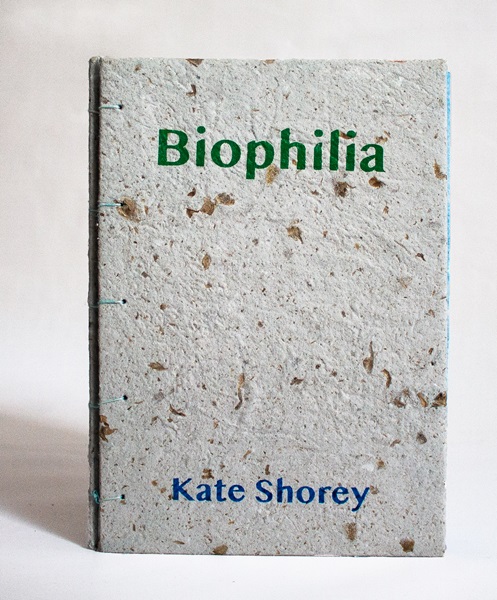
What has your experience been like on the MA Fine Art Course at Central Saint Martins? How has your work developed during your time there?
Since my first degree was in Photography, it was really exciting having not only access to a broader range of facilities, but also having a dedicated studio space to work on my practice, especially since some of the processes I use need space! Having access to the facilities which I hadn’t before enabled me to experiment with new materials and processes such as welding. I also got to meet so many talented and inspiring fellow artists and friends such as Sophie Anna Gibbings, Yasmin Idris, Rayya Khuri, Parks Sandler and Daniel Rey who all make such important work - go check them out!
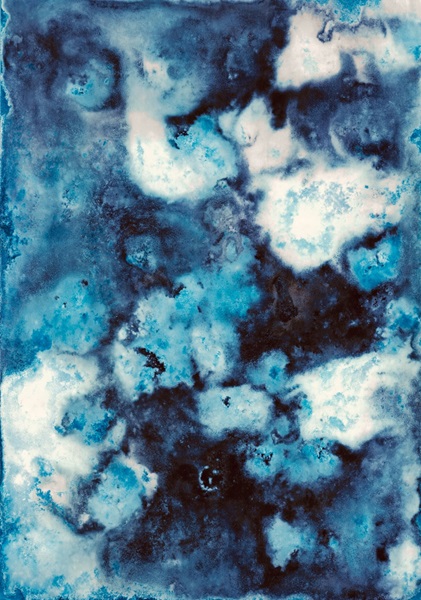
Tell us about the themes in your work now and what inspired you to make work about these subjects?
Most of my work broaches on social and environmental issues, and I’m particularly interested in how these connect. As a neurodivergent individual, this is something I explore a lot in my work and research, for example theories exploring neurodiversity as a manifestation of biodiversity and its history in evolution. Ecology and environment is also something I explore heavily in my work as we are facing a climate emergency, and as an artist and human being I think it’s important to act on this!
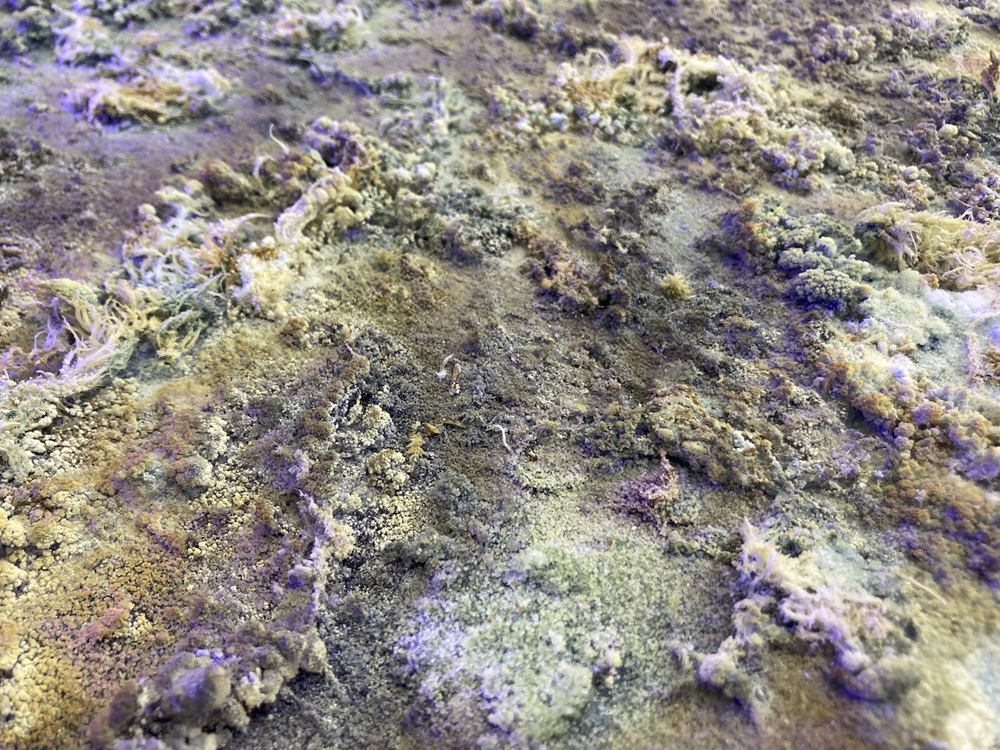
Your work Symbiosis I is Cyanotype on watercolour paper. Could you talk us through your process for making the piece and explain how this medium is intrinsic to the themes in your work?
Yes of course! This series of cyanotypes aims to draw attention to the small but vital interactions that happen within our ecosystems every day that we are often oblivious to, yet are so important on our planet. The cyanotype is the perfect medium for this as it can capture traces of such small ephemeral details and it uses the light of the sun.
The series is made up of what I call ‘ecosystem cyanotypes.’ Essentially, I built a mini ecosystem on top of the cyanotype coated paper. I placed moss onto the cyanotype along with other elements such as soil and salt, which I moistened so that salt crystals formed. Moss plays a significance in this work as it absorbs pollution and particles from the air that are dangerous to inhale, such as PM 2.5 and PM 10, and processes these into small layers of soil. Moss is also often the first life to grow after a forest fire, and its existence enables other life to return. Despite this importance, the majority of UK households see moss as an inconvenience- something you don’t want on your roof, in your gutter or on your lawn, and so it is removed despite its importance to our ecosystems. With the moss and other materials added, micro-ecosystems resembling dystopian landscapes are formed, and the cyanotypes became alive, living and growing. As the sun rotates, the UV light passes through the forming salt crystals and moss documents their growth and movement. The resulting cyanotype documents the interaction of these elements, highlighting the beauty of the small interactions in our ecosystem and drawing attention to these.
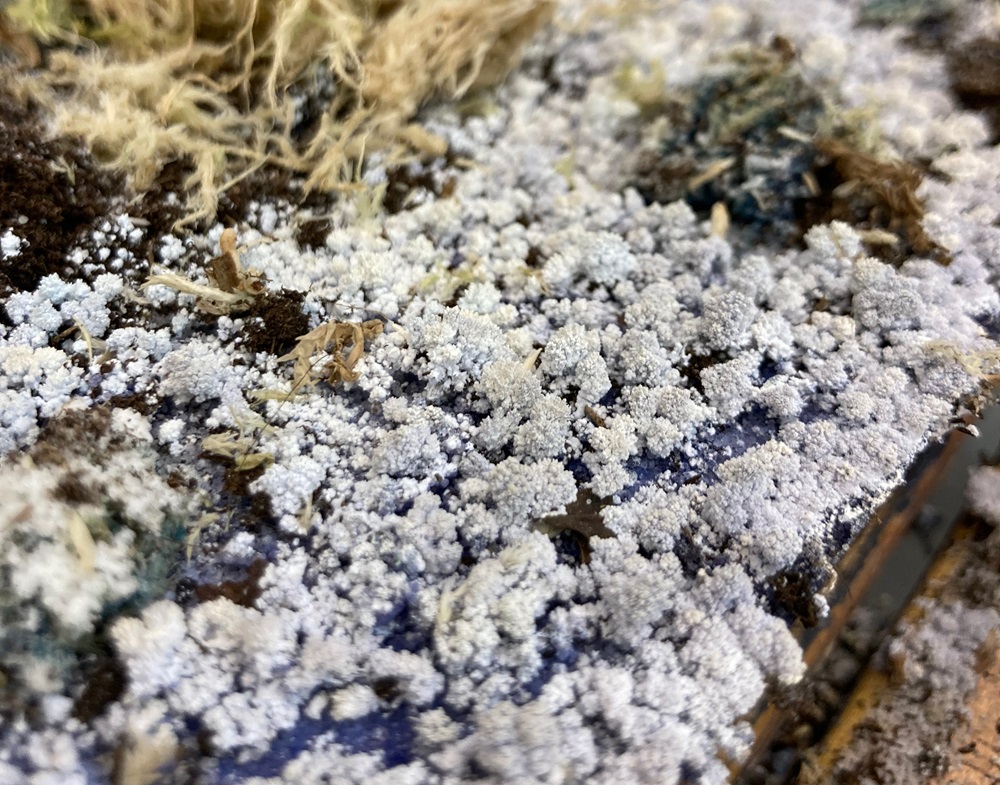
You like to use alternative and sustainable materials and processes in your practice. What materials do you prefer to use and has it been challenging to find alternatives?
During lockdown, since supplies and options were limited I began experimenting with a broader range of alternative processes such as cyanotypes, anthotypes and chemigrams. Also, since all the film processing labs were closed, I taught myself how to hand process colour film which made me more aware of the toxicity of chemicals and that led me to start producing my own plant-based developers, such as those made from rosemary and mint. This is something I’ve carried on in my work. This wouldn’t have been possible without the help of ‘The Sustainable Darkroom’ who have done a lot of work in terms of sharing knowledge, recipes and inspiration on how to make to make photographic processes more sustainable - if you’re interested in this do look them up!
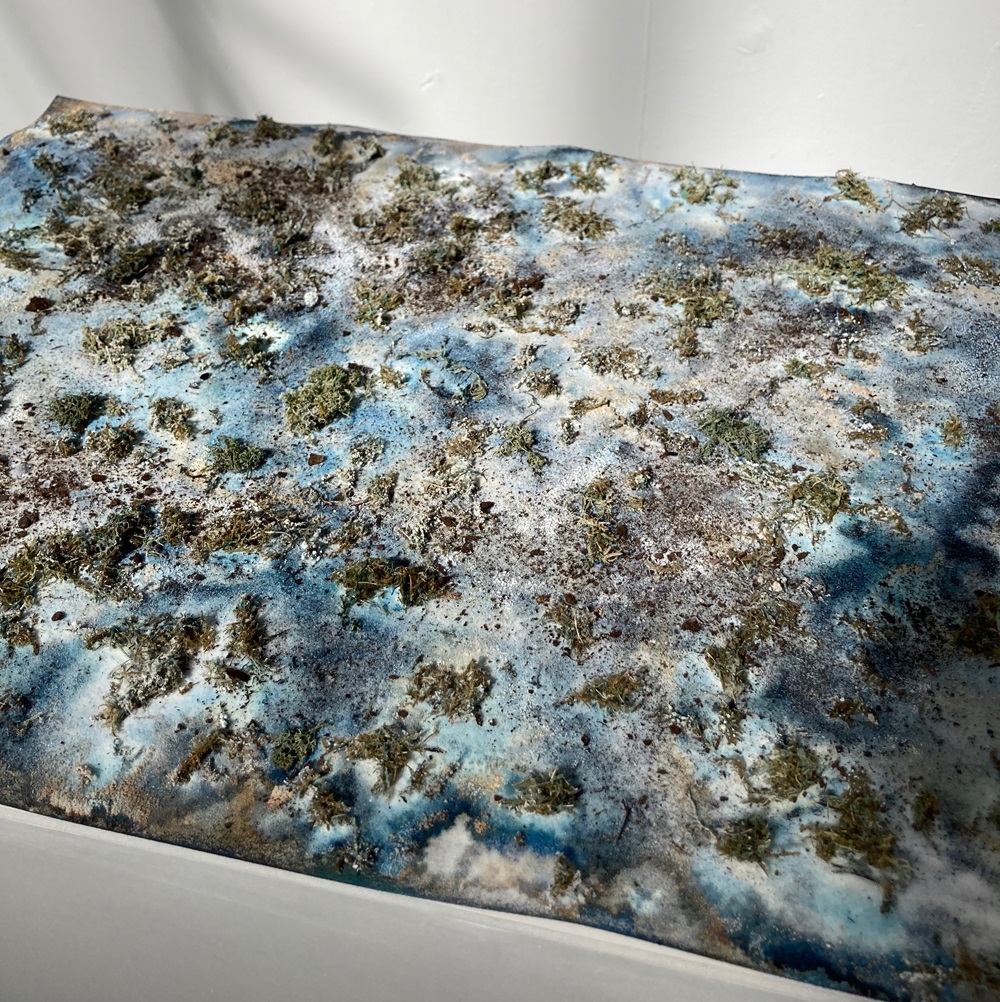
Alongside your own practice, you also work as an arts educator. What has your experience of teaching been like?
I love teaching and it has definitely been beneficial for my practice! My students are constantly inspiring me with their stories and their creations. I’ve also been fortunate enough to co-run a number of creative projects with partner organisations around Europe and meet amazing artists and educators from around the world. I’ve also been fortunate enough to run art therapy sessions for the NHS which has been amazing and really shown me the power that art has to transform people’s lives.
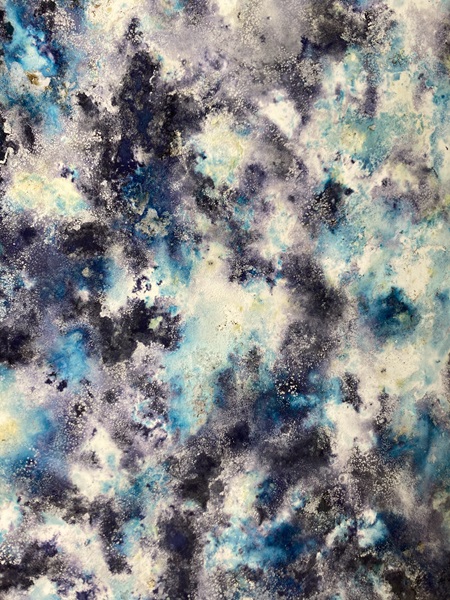
And finally, what are your plans for the immediate future?
I’m currently in Spain walking the Camino de Santiago, which has been an amazing experience! Once I get back, I have an upcoming exhibition at Hypha Studios - the private view is on the 27th of June and you can book a free ticket for this and find out more information here. Alternatively, the exhibition is open to the public from 28th June - 2nd August, Thursday - Sunday 12 - 6pm.
Thanks Kate, best of luck with the show!
See more of Kate’s work at www.kateshorey.com or on Instagram @kate.shorey
Feeling inspired?
Read more artist interviews on the Cass Art blog. Visit the Made in Arts London website to find out more about how they support student and graduate artists.
